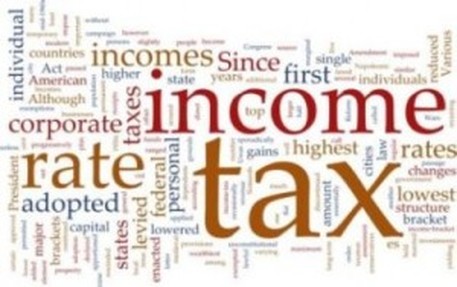A good tax system must satisfy several general principles of taxation. The main principles include productivity, equity, and elasticity.
Productivity. The chief goal of a tax system is to generate the revenue a government needs to pay its expenses. When a tax system produces such revenue, it satisfies the principle of productivity. If a tax system fails to produce the needed revenue, government may have to ad to its debt by borrowing money.
Equity. Most people agree that a tax system should be equitable (fair) to the taxpayers. Economists refer to two kinds of equity-horizontal and vertical. Horizontal equity means that taxpayers who have the same amounts of income should be taxed at the same rate. Vertical equity implies that wealthier people should pay proportionately more taxes than pooper people. This is sometimes called the principle of ability to pay.
Governments often try to achieve tax equity by making their taxes progressive. A progressive tax has a rate that depends on the sum to which it is applied. The rate increases as that sum increases. For example, the U.S. individual income tax is a progressive tax because it applies a higher rate to larger taxable incomes than it does to smaller ones.
Elasticity. a tax system should be elastic (flexible) so that it can satisfy the changing financial needs of a government. Under an elastic system, taxes help stabilize the economy. For example, taxes increase during periods of economic growth and thus help limit inflation (rapid price increases). Increasing taxes would leave less money for consumers to spend to send process up. Similarly, taxes decrease during a decline in economic activity to help prevent a recession. This action would leave consumers more money to spend and encourage economic growth.
Other principles of taxation. People agree that taxes should be convenient and easy to pay, and that they should be inexpensive for governments to collect. In addition, taxpayers should know in advance when a tax has to be paid, so that they can save enough money to cover the payment.
Some economists believe a tax system should also satisfy the principle of neutrality. According to this principle, tax laws should not affect taxpayers’ economic decision, such as how to spend, save, or invest their money. But other economists believe a tax system must defy the principle of neutrality to achieve tax equity or to stabilize economic growth. Still other economists believe a tax system should play an active role in redistributing wealth. They support taxing the wealthy at highly progressive rates and using the collected revenue to finance services for the poor.
Productivity. The chief goal of a tax system is to generate the revenue a government needs to pay its expenses. When a tax system produces such revenue, it satisfies the principle of productivity. If a tax system fails to produce the needed revenue, government may have to ad to its debt by borrowing money.
Equity. Most people agree that a tax system should be equitable (fair) to the taxpayers. Economists refer to two kinds of equity-horizontal and vertical. Horizontal equity means that taxpayers who have the same amounts of income should be taxed at the same rate. Vertical equity implies that wealthier people should pay proportionately more taxes than pooper people. This is sometimes called the principle of ability to pay.
Governments often try to achieve tax equity by making their taxes progressive. A progressive tax has a rate that depends on the sum to which it is applied. The rate increases as that sum increases. For example, the U.S. individual income tax is a progressive tax because it applies a higher rate to larger taxable incomes than it does to smaller ones.
Elasticity. a tax system should be elastic (flexible) so that it can satisfy the changing financial needs of a government. Under an elastic system, taxes help stabilize the economy. For example, taxes increase during periods of economic growth and thus help limit inflation (rapid price increases). Increasing taxes would leave less money for consumers to spend to send process up. Similarly, taxes decrease during a decline in economic activity to help prevent a recession. This action would leave consumers more money to spend and encourage economic growth.
Other principles of taxation. People agree that taxes should be convenient and easy to pay, and that they should be inexpensive for governments to collect. In addition, taxpayers should know in advance when a tax has to be paid, so that they can save enough money to cover the payment.
Some economists believe a tax system should also satisfy the principle of neutrality. According to this principle, tax laws should not affect taxpayers’ economic decision, such as how to spend, save, or invest their money. But other economists believe a tax system must defy the principle of neutrality to achieve tax equity or to stabilize economic growth. Still other economists believe a tax system should play an active role in redistributing wealth. They support taxing the wealthy at highly progressive rates and using the collected revenue to finance services for the poor.

